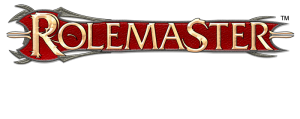This is not about what you think it is going to be about.
The experience rules in RMU and in HARP offer experience for minor and major personal goals (HARP) or Minor, Moderate and Major personal events (RMU).
So as a GM how do you know when your players’ characters has achieved a personal goal or event? Where is the break point between Moderate and Major events (other than on page 107 of the beta rules). Will you remember to account for these or in the case of minor events can you even count all of these?
I know there are loads of alternative experience systems from count every PP used and hit taken to you level up when I tell you. I was recently very kindly given a copy of the 7th Sea Second Edition rules. 7th Sea is a game I really like but is worlds away from Rolemaster. There is almost no cross over between the two systems for example 7th Sea heroes can take out many thugs in a single turn but no attack is ever fatal. In RM if you faced six thugs at once on your own, whatever level you are you have to seriously consider the consequences of that one freak open ended attack and possible critical.
I said there is ‘almost’ no cross over. 7th Sea doesn’t have levels or experience points. Characters progress by being awarded skill increases or other bump ups in individual traits. What is interesting here though is the concept of Character Stories. So when you create your character you also create the start of a character story. Most of us already do this as part of our character back story. The difference here is that although there is a clear end goal, such as avenge your father’s death or clear your name, you only create the very first step or task to achieve that goal. So your story may be “Clear your name from a crime you didn’t commit” but step one is “find the name of your accuser”. So imagine this a just a title and a single bullet point below. During the role play you may well find the name of your accuser so then the next step is of course to find that man and question him. So now you have a second bullet point. The GM always has a clear idea of where each character is in their background stories, things that he or she can weave into the game session and from a RM point of view when Minor, Moderate and Major personal events have happened.
I think this is a really simple mechanism that brings together a method of making characters’ back stories really relevant the characters future, it helps the GM keep those stories straight and it dovetails nicely with the new experience rules.
I am never one to pass up a good idea when I see one! If you are interested in 7th Sea then there is a single volume core rulebook (just the sort of thing that RMU needs 🙂 ) on RPGnow for about $25.

